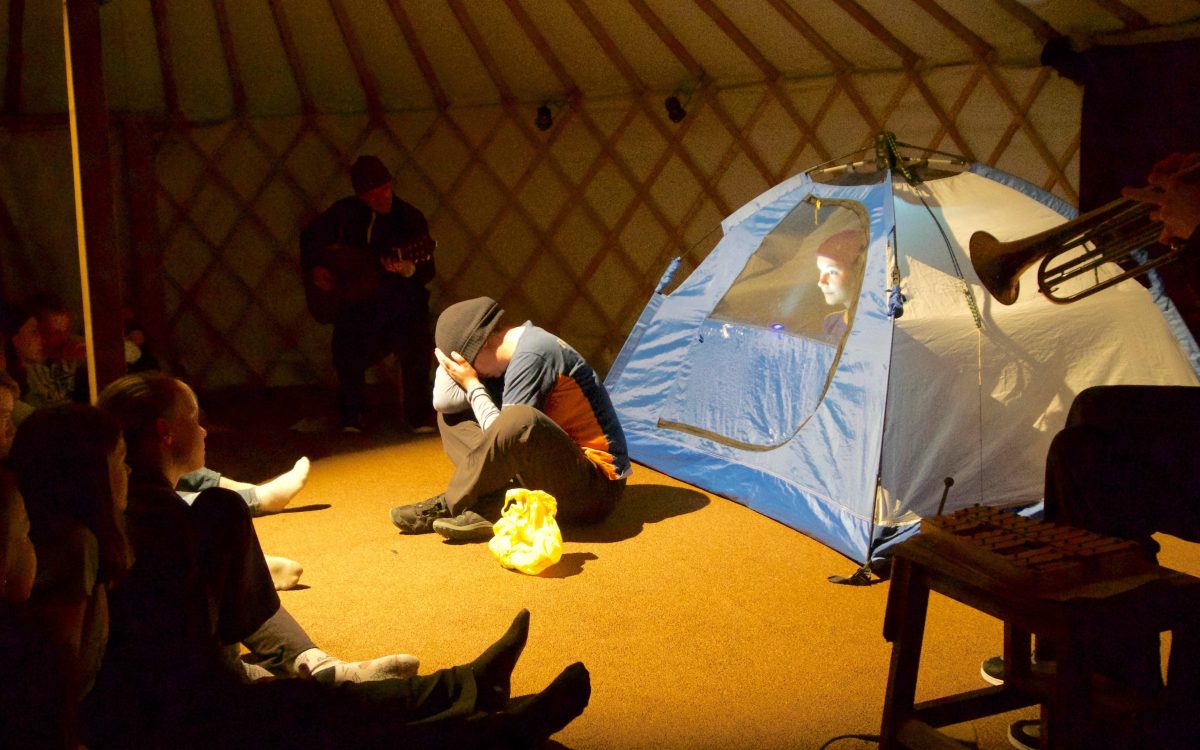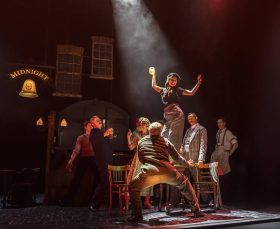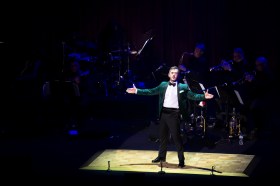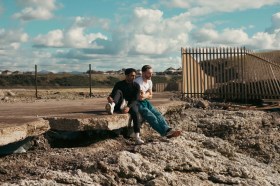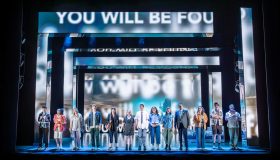It’s safe to say that kids today have a very different perception of the world than their parents’ generation. They can access information at rapid speeds, where two-minute videos can take you through a week’s worth of breaking news. As much as we would like to shelter them from difficult topics such as the violence of war or the dire situation of our climate crisis, young people these days have countless avenues to access information, and often form their own opinions.
Art, on the other hand, is a medium that has long been utilised to navigate difficult topics such as mortality and morality. Today, art can also provide a safe space to expose children to current issues.
Read: Do children’s festivals encourage better arts education in schools?
Two theatre productions landing in Australia in May will highlight the lesser-known experiences of children.
Norwegian theatre company New International Encounter (NIE) will present We Come From Far Far Away (for ages 10+) at Sydney Opera House and Adelaide’s DreamBIG Children’s Festival. Developed in collaboration with the asylum centre, Hvalstad Transittmottak, south-west of Oslo, it follows the story of two boys from Aleppo who travel to Norway.
Young refugees from Syria, Eritrea and Turkey often arrive in Norway unaccompanied, and some of them have shared their stories with NIE.
When NIE Artistic Director Kjell Moberg speaks with ArtsHub, he is inside a new national theatre for young audiences in Oslo, currently under construction and due to be completed in late 2025.
He explains the story behind We Come From Far Far Away. ‘We noticed that kids in the school were a little bit afraid of the youngsters that had come to Norway [from Syria]. There was really a missing link for them to understand that these are the people that are in the news.
‘What the youngsters wanted was to share their journey, which was the most difficult part… And when we have shown this work in areas where there are refugee kids, they often feel proud that they can say to their fellow classmates, “Look, this is also my story”.’
Moberg continues: ‘We’re in a very crazy situation in Europe with a new war and I’ve had to tell my own kids about that… The most important thing for us is to just make something that could tell kids there is still friendship and hope, even in the darkest hours.’
The show not only brings the journey of fleeing war into perspective, but also presents its young audiences with moral dilemmas that they themselves have to navigate.
Moberg says: ‘There’s a point [in the show] where there are two puppet policemen and the two refugee boys are hiding inside the tent. The policemen ask the audience, “Have you seen the refugees? We want to catch them.” By that point, most kids feel that the boys have become their friends and collectively lie to protect them.’
Another work, Removed (for ages 11+) by Belfast-based Prime Cut Productions, sheds light on stories of young people with experience in state care systems. Writer Fionnuala Kennedy says: ‘Many children will experience difficult times in their young lives, for lots of different reasons, so it’s important to acknowledge this and not shy away from tackling these things, so that children can see themselves authentically reflected in our stories and on our stages.’
Collaborating with the organisation Voices of Young People in Care (VOYPIC) ‘was the most important aspect of the entire project,’ adds Kennedy, but says ‘these [partnerships] are never easy’.
She explains: ‘There are two organisations with their own goals and objectives, the young people with care experience and artists all in the mix, but this project was always given the time it needed, and that was crucial.’
Balancing the fun without sensationalising the trauma
Moberg says that ensuring a show is fun and engaging while presenting difficult topics ‘goes to the core of our work’. But NIE is also very aware of the thin line between opening up about trauma and dramatising or sensationalising it.
‘It’s a big dramaturgical question. We try to get around presenting “reality” through storytelling, music, light and the set. It’s about bringing kids to places where they feel safe and they take part. One of the most important things is that no one should be traumatised, or retraumatised, especially when it comes to really recent conflicts such as with Ukrainian youngsters in Prague,’ says Moberg.
Kennedy shares a similar view and speaks about the power of humour, which is ‘not only important to authentically reflect these young people, but it’s also necessary when dealing with such heavy topics’.
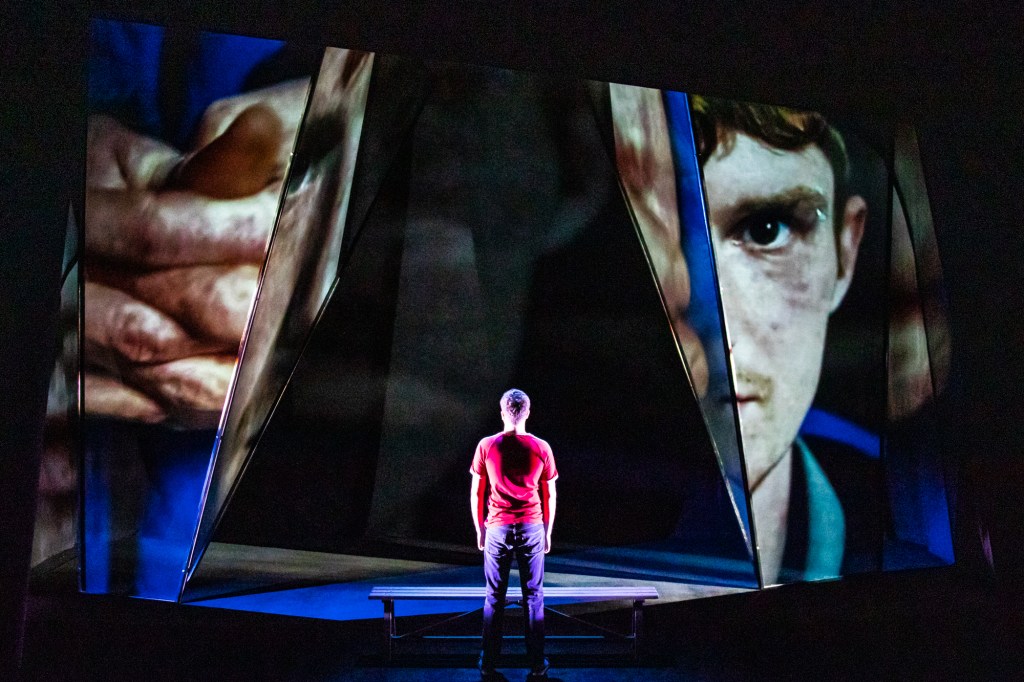
She continues: ‘When working and talking to young people with care experience, quite often their stories (because of the unpredictable nature of that life), were at times absurd and, in the retelling, they’d be laughing at how mad some things were… Without [humour], it can be too overwhelming for an audience and they switch off. Or things can seem preachy – this is always the danger in working for young people.
‘Quite often, funders or commissioners want young people to learn something – for me, the act of witnessing a good piece of theatre is transformative within itself,’ Kennedy adds. ‘I think this is the same rule for presenting to an adult audience; they just may be more forgiving. Young people will always let you know when they’re bored!’
Read: Teen takeovers in regional Australia: what’s happening outside the major cities?
There is also immense value for parents and teachers in discussing these topics through art, notes Moberg. ‘I want the shows to ask questions that can be brought up again a week or two weeks later at the kitchen table – the family setting is a small but integral unit of society.
‘The great thing with theatre is that you can make a space where you can agree or disagree – everything is allowed inside the space, and you can also change your opinion.’
Using theatre as a critical medium, these works not only expose children to some of the most relevant and pressing issues of our society today, but also bring to light the lesser-told stories experienced by kids and teens around the world.
We Come From Far Far Away will be presented at Sydney Opera House 20-21 May and DreamBIG Children’s Festival 27 May.
Removed will be presented at DreamBIG Children’s Festival 24-27 May.
